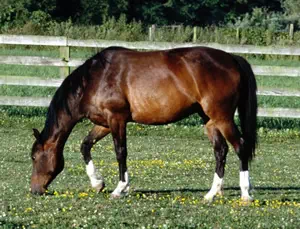|
 DELAWARE DELAWARE
Carcass Disposal State Regulations
General
Depending on circumstances, large animal carcass disposal may be regulated by a state's solid waste, medical waste, agriculture, or emergency management regulations. If your state does not provide specific guidance or regulations relating to large animal carcass disposal, check with your local health department, or city/county laws and ordinances.
In addition, during emergency situations and disasters (e.g., blizzards, floods, hurricanes, mass die-offs, etc.), consult with your local emergency officials, your state emergency planning agency, or the state veterinarian, to determine approved methods of carcass disposal.
Applicable Agencies and Regulations for Delaware
Delaware Department of Agriculture
Address: 2320 S. Dupont Hwy, Dover, DE
Contact Information: http://dda.delaware.gov/contact.shtml
Rules and Regulations: Nutirent Best Management Practice Booklet (2005). Describes animal mortality handling (both daily and catastrophic) and refers to the codes appropriate for each practice. Topics covers include:
- Rendering: 2nd choice for non-catastrophic mortalities.
- Landfilling: Sanitary landfill is an alternative to composting in event of catastrophic mortality.
- Burial: Not recommended for daily mortalities but mass burial may be done for catastrophic mortality of an extremely communicable disease on the infected premise as agreed upon b y State Agricultural and Environmental officials.
- Burning: NRCS Practice Code 769. All incinerators must be registered with Department of Natural Resources and Environmental Control (DNREC). For catastropic mortality of animals greater than several hundred pounds, the pathogenic incinerator at the Delaware Department of Agriculture may be used.
- Composting: NRCS Practice Code 317. Preferred method for both daily and catastrophic mortality. Guidelines available at http://extension.umd.edu/publications/pdfs/fs717.pdf. University of Maryland Cooperative Extension Fact Sheet 717: Composting Animal Mortalities on the Farm (see Maryland Cooperative Extension on this map).
- Other Methods: Freezers may be used to store carcasses until such time as they can be removed offsite for recycling or rendering.
More Information
The Cornell Waste Management Institute (CWMI) maintains a database of carcass disposal state regulations promulgated by state environmental, agricultural and other agencies. There may be additional information on this site, not found on VetCA, that can be helpful to veterinarians, ranchers and farmers. Click here to access the CWMI information for Delaware.

Choose another state
|

